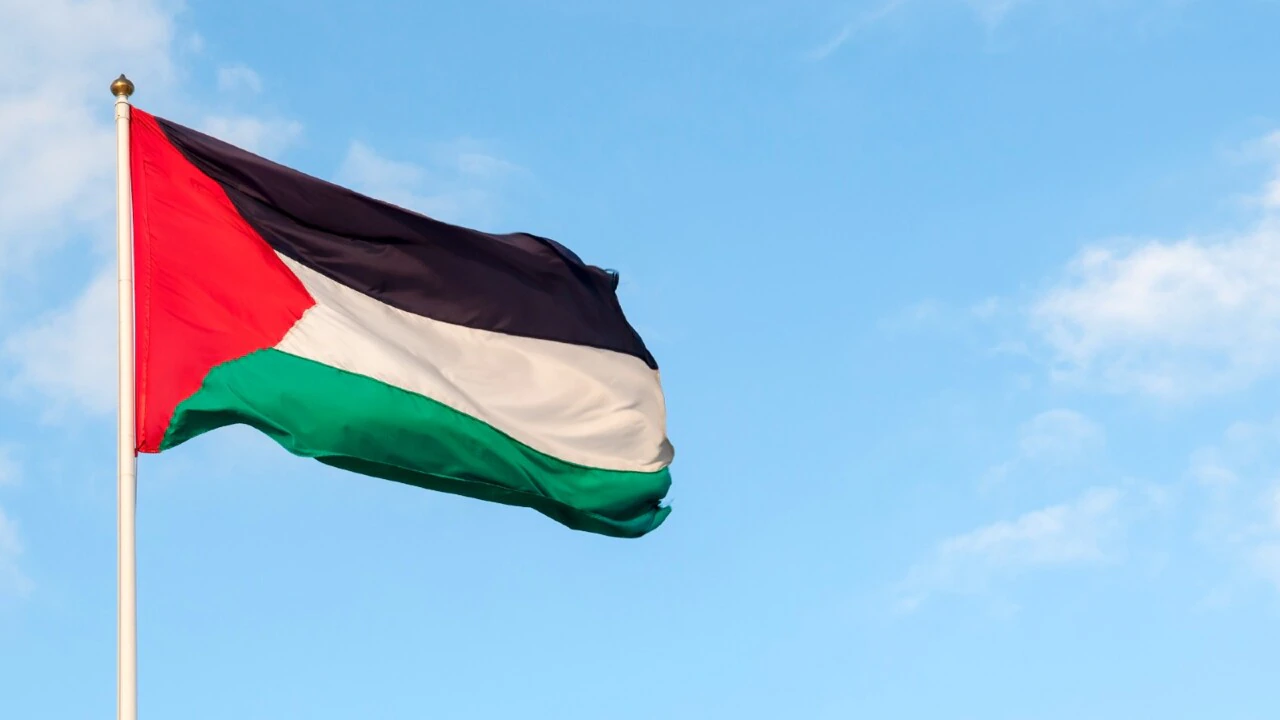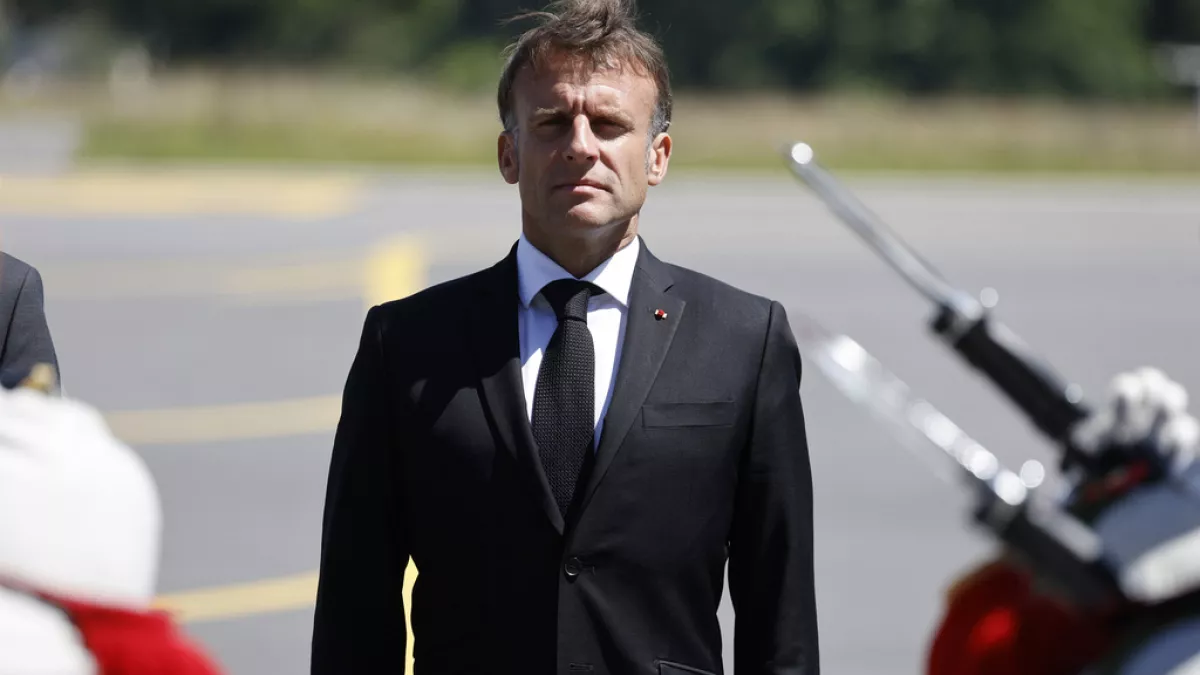A recent incident in the Australian Parliament involving Senator Lidia Thorpe and a Palestinian flag has sparked widespread controversy and reignited debates about the Israeli-Palestinian conflict. Thorpe’s unfurling of the flag, inscribed with “Free Palestine,” during a Senate session has drawn sharp criticism from both the government and the opposition, leading to accusations of antisemitism and disrespect towards the parliamentary institution.
Key Points
1. The Incident in the Australian Parliament
Independent Senator Lidia Thorpe unfurled a Palestinian flag with “Free Palestine” written on it during a Senate session.
2. Reactions from Government and Opposition
The action was condemned by the government and opposition as a “stunt” and disrespectful to the parliament.
3. Accusations of Antisemitism
Thorpe’s use of the term “apartheid” to describe Israel’s treatment of Palestinians drew particular ire and accusations of antisemitism.
4. Senator Thorpe’s Defense
Thorpe defended her actions, stating she was highlighting human rights abuses and denying any antisemitic intent.
5. Broader Implications for Australian Politics
The incident reignited debate about the Israeli-Palestinian conflict and accusations of antisemitism within Australian politics.
The Incident in the Australian Parliament
Details of the Event
During a recent Senate session, Independent Senator Lidia Thorpe unfurled a Palestinian flag bearing the words “Free Palestine.” This act was intended to draw attention to the ongoing Israeli-Palestinian conflict and criticize what Thorpe referred to as Israel’s apartheid-like treatment of Palestinians.
Immediate Reactions
The incident immediately sparked outrage among fellow parliamentarians. Both the government and opposition quickly condemned Thorpe’s actions as a publicity stunt that disrespected the sanctity of the parliamentary setting.
Reactions from Government and Opposition
Government’s Condemnation
Government officials criticized Thorpe’s protest as inappropriate and inflammatory. They argued that such actions undermine the decorum of the Senate and distract from the legislative agenda.
Opposition’s Response
The opposition echoed these sentiments, labeling Thorpe’s protest as disrespectful and counterproductive. They emphasized the need for constructive dialogue rather than provocative displays.
The Accusations of Antisemitism
Thorpe’s Use of “Apartheid”
Thorpe’s characterization of Israel’s policies towards Palestinians as “apartheid” was particularly contentious. This terminology has been a flashpoint in international discussions about Israel, often eliciting strong reactions from various political and social groups.
Public and Political Reactions
The use of such charged language drew accusations of antisemitism from several quarters. Critics argued that Thorpe’s statements and actions could fuel prejudiced sentiments against Jewish communities and misrepresent the complexities of the Israeli-Palestinian conflict.
Senator Thorpe’s Defense
Thorpe’s Justifications
Senator Thorpe defended her protest by highlighting the severe human rights abuses faced by Palestinians. She maintained that her actions were aimed at bringing attention to these issues and advocating for justice.
Human Rights Focus
Thorpe asserted that her focus was purely on human rights and not intended as an attack on Jewish people or the state of Israel itself. She stressed the importance of differentiating between criticizing a government’s policies and being prejudiced against its people.
Denial of Antisemitic Intent
Thorpe categorically denied any antisemitic intent behind her actions. She argued that her protest was a legitimate expression of concern for oppressed communities and should not be conflated with antisemitism.
Broader Implications for Australian Politics
Impact on Israeli-Palestinian Conflict Debate
The incident has reignited debates about the Israeli-Palestinian conflict within Australian politics. It has highlighted the deep divisions and strong opinions that exist on this issue among Australian lawmakers and the public.
Polarization of Public Opinion
Public opinion has become further polarized, with some supporting Thorpe’s right to speak out on human rights issues and others condemning her methods and message. This polarization reflects broader global trends in how the Israeli-Palestinian conflict is discussed and debated.
Insights into the Israeli-Palestinian Conflict
Sensitivity of the Conflict
The incident underscores the highly sensitive nature of the Israeli-Palestinian conflict. Even in distant countries like Australia, actions and statements related to this issue can quickly escalate tensions and provoke strong reactions.
Criticism vs. Prejudice
The accusations of antisemitism illustrate the fine line between criticizing Israeli government policies and veering into prejudiced territory. This distinction is crucial for fostering constructive dialogue and avoiding harmful stereotypes.
Parliamentary Protest and Freedom of Expression
Appropriate Forms of Protest
The incident raises important questions about the appropriateness of certain forms of protest within parliamentary settings. Balancing the right to free expression with respect for institutional norms and decorum is a complex challenge.
Balancing Expression and Institutional Respect
While protest is a vital part of democratic expression, there is a need to ensure that such actions do not undermine the integrity and function of parliamentary institutions. Finding this balance is essential for healthy democratic discourse.
Global Resonance of the Incident
International Reactions
The incident has garnered attention beyond Australia, with international observers weighing in on the implications for global discussions about the Israeli-Palestinian conflict and antisemitism.
Comparative Incidents in Other Parliaments
Similar incidents in other countries highlight the global nature of these debates and the challenges faced by lawmakers in navigating these sensitive issues. Comparing these incidents can provide insights into how different nations handle such controversies.
Conclusion
Beyond the immediate outrage and political posturing, this incident underscores a growing global trend: the Israeli-Palestinian conflict is no longer a distant, abstract issue. It is increasingly finding its way into domestic politics, forcing nations to confront uncomfortable questions about their own foreign policy stances and internal struggles with prejudice. Australia, with its own complex history of colonialism and diverse population, is now grappling with these challenges in its own parliament. This incident serves as a stark reminder that the quest for peace and justice in the Middle East has far-reaching consequences that resonate across the globe.
Frequently Asked Questions (FAQs)
Why did Senator Lidia Thorpe unfurl a Palestinian flag in the Australian Parliament?
Senator Thorpe unfurled the flag to draw attention to the Israeli-Palestinian conflict and criticize what she described as Israel’s apartheid-like treatment of Palestinians.
What were the reactions from the government and opposition?
Both the government and opposition condemned the action as a stunt that disrespected the parliamentary institution and diverted focus from legislative work.
What accusations of antisemitism were made?
Thorpe’s use of the term “apartheid” and her protest drew accusations of antisemitism from various quarters, who argued that her actions could fuel prejudiced sentiments against Jewish communities.
How did Senator Thorpe defend her actions?
Thorpe defended her actions by highlighting the human rights abuses faced by Palestinians and denied any antisemitic intent. She emphasized that her protest was aimed at advocating for justice.
What broader implications does this incident have for Australian politics?
The incident has reignited debates about the Israeli-Palestinian conflict, highlighting deep divisions and polarizing public opinion within Australian politics.
How does this incident reflect broader global trends?
The incident reflects a global trend of the Israeli-Palestinian conflict becoming a prominent issue in domestic politics, forcing nations to address complex foreign policy and internal prejudice challenges.



